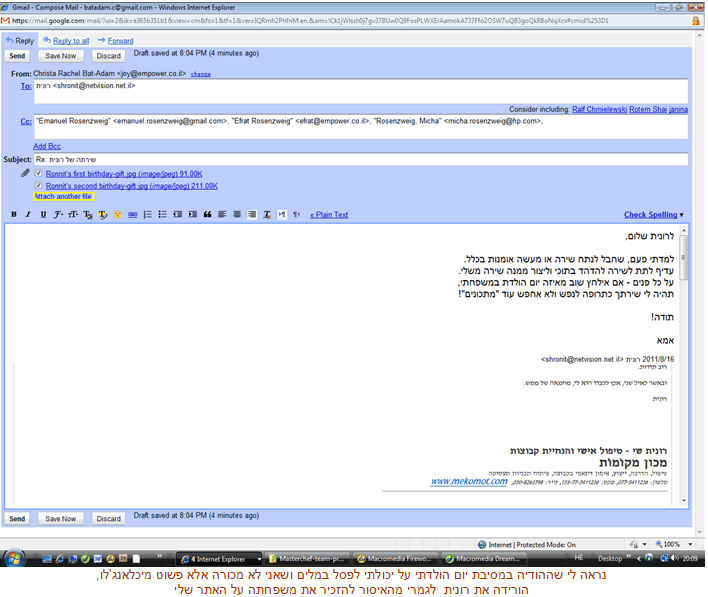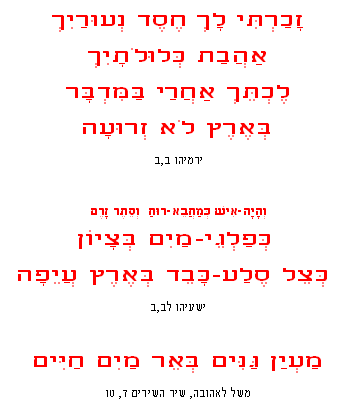|
InteGRATion into
GRATeFULLness
Singing&Sounding keeps me Sound
![]()
| 2007_08_15 updated on Febr. 11, 2009 see the addition below again updated on August 15, 2009, my 71th birthday |
|
tune: Christa-Rachel Bat-Adam Jeremia 2:2: created exactly 5 years ago for "Desert Vision - A Succah Timeline", but not used in it. While 3 days ago searching for a song for my 69th birthday, I came across this cherished text of Jeremia, felt like adding two more beloved verses and completed the tune, first created on August 10, 2002 |
|
Utz' photo of 1987, added on Dec.
15, 2013 - in the shadow of a heavy rock
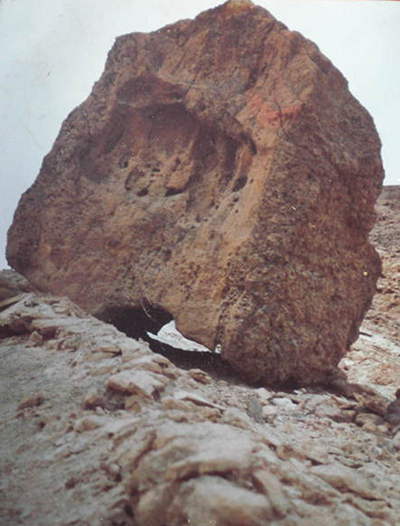
![]()
|
Following my understanding and new lekh-lekhâ on January 1, 2009, that - after 7 years - I should no longer create new pages on my 2 websites, but intermingle the evidence of new experiences with that on existing pages, I'm inserting here a sequence of images taken during a short hike down to Nahal Hesed, the Wadi of Grace in the early morning of Febr. 11, 2009, after the first real rain in my desert (Arad!) in winter 2008-2009. The rain came to bless us after the closing of the ballot-boxes on Election-Day 2009_02_10, 10 P.M. |
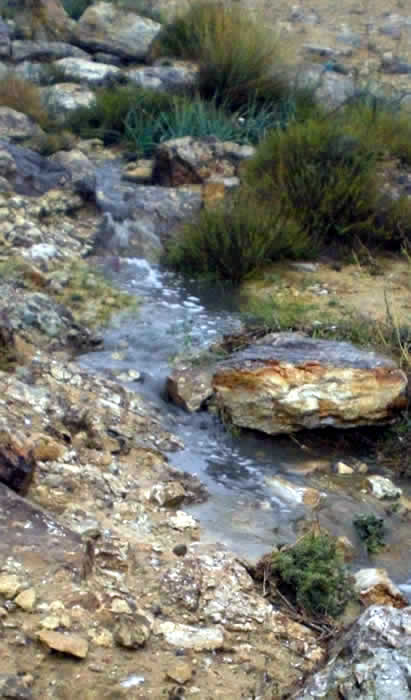 |
 |
Listen to the sound of this tiny water-fall - recorded
by error by my camera
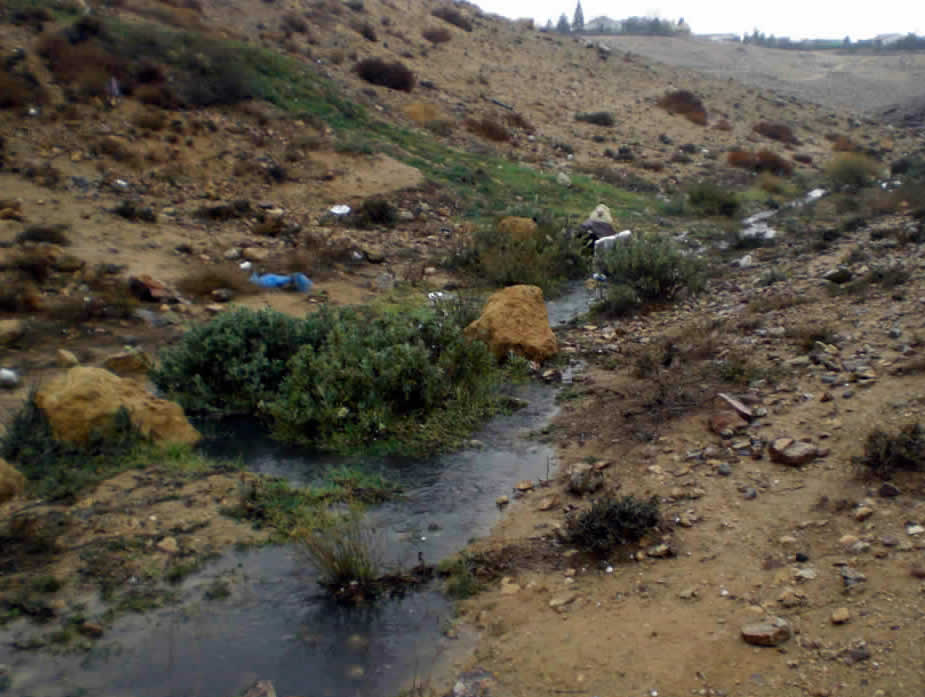
So often have
I mentioned my Wadi of Compassion , the little wadi, to which I gave the
name "Nakhal Khaemlah", or Nahal Hemlah,
and so rarely did I have the chance to see water run through it and down to
the big Wadi of Compassion, which exists on the maps.
The big wadi is called "Nahal Hesed", - "hesed, khaesed,"
meaning grace, mercy, kindness, compassion
and much more, see "God's" use of the word in Jeremiah 2, the song
of this page.
In the composition of these photos I do not want to arouse the illusion of
an idyll!
As I told,
the ferocious storm on that day had blown the garbage into "my"
Wadi of Compassion,
which usually is relatively clean - because of my continuous work on keeping
it so.
This renders the rivulet the sight of a sewage, which was and is painful for
me to watch.
Therefore most of the following images were chosen
because they were free of garbage.
How come, that nobody else cares? During the following days I restarted my
cleaning work,
but there is so much to pick up, that I couldn't finish before I traveled
again to Bet Nehemya.

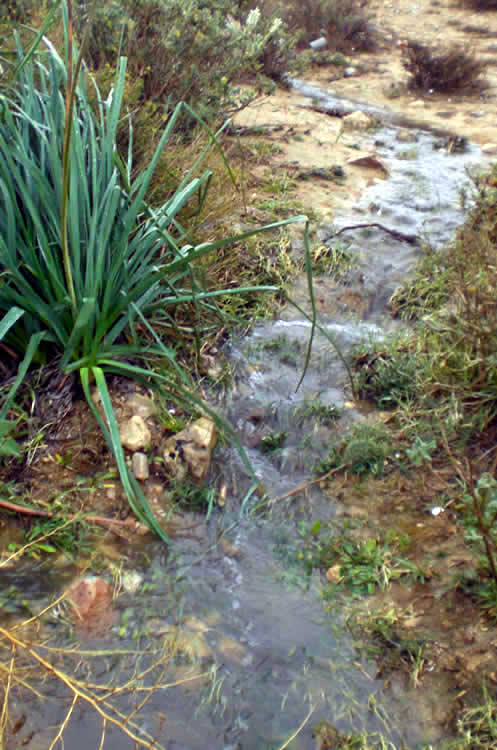
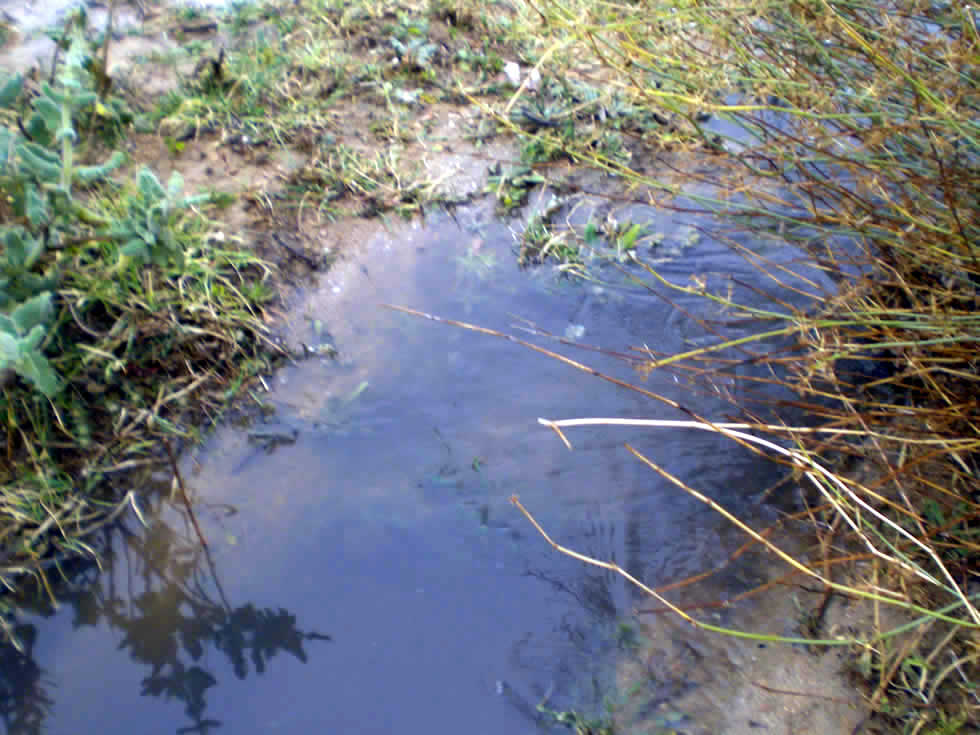
A reflection in a tiny pond...
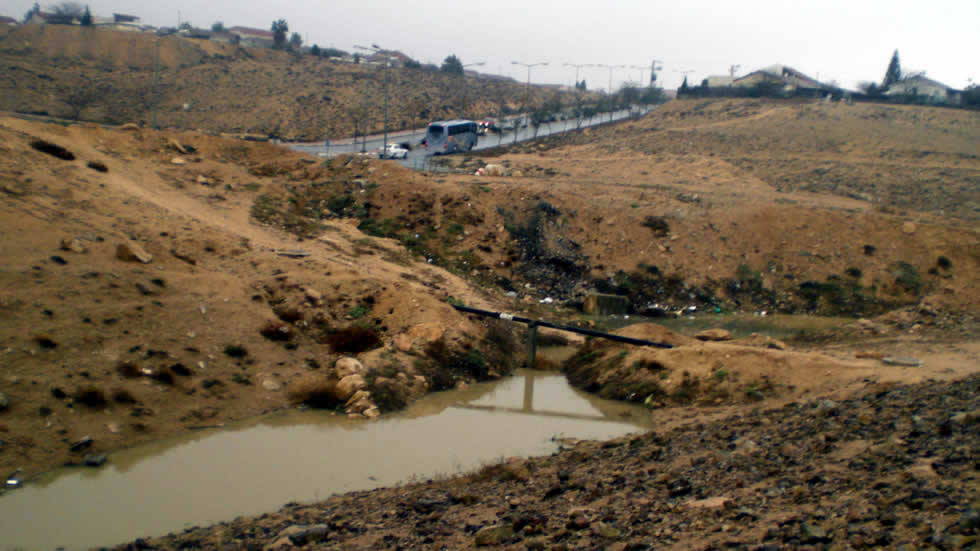
Garbage unabashedly follows the diggings for a water-pipe,
which even without accompanying garbage pollutes the landscape
 |
I
reach the lower area of my Wadi of Compassion. Except for the water-pipe there is less garbage here. The descent is steep and muddy and I must put my feet in a 90 degree angle to the path, so as not to slip 
|
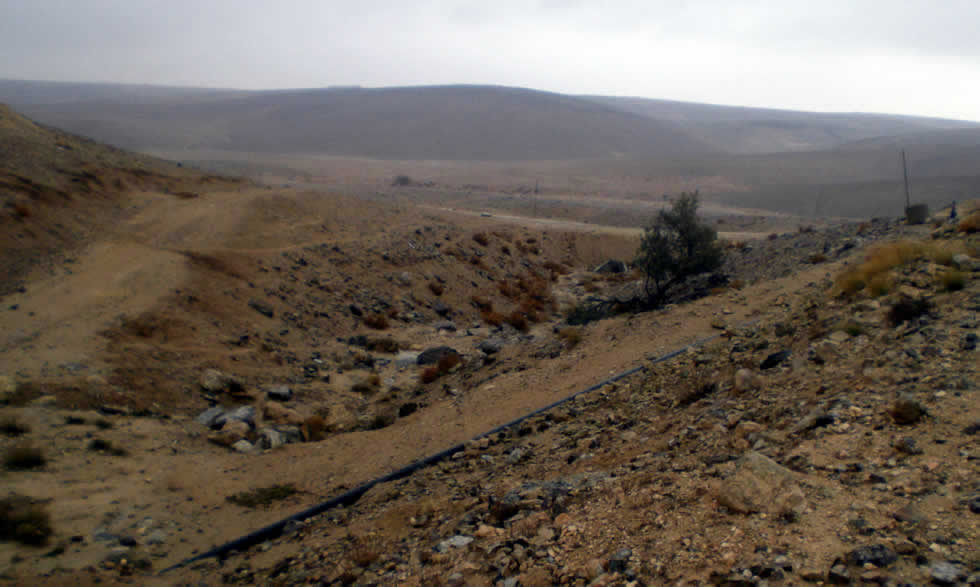
It's here, where my small Wadi of Compassion, nakhal
khaemlah, will joind the big Wadi of Compassion, nakhal
khaesed, - see the tunnel underneath the dirt road

There it is - the wide Wadi of Compassion
See again the article about Tamar
and Eitan Shaked, "Moments of Grace".
These two wonderful people would be my friends and coworkers,
if it would be still the time for
me to realize my visions in the exterior world...

As I follow the rivulets down to the actual riverbed,
I see three camels. Have they been exposed to the rain all night?
I and my camera come nearer and nearer.
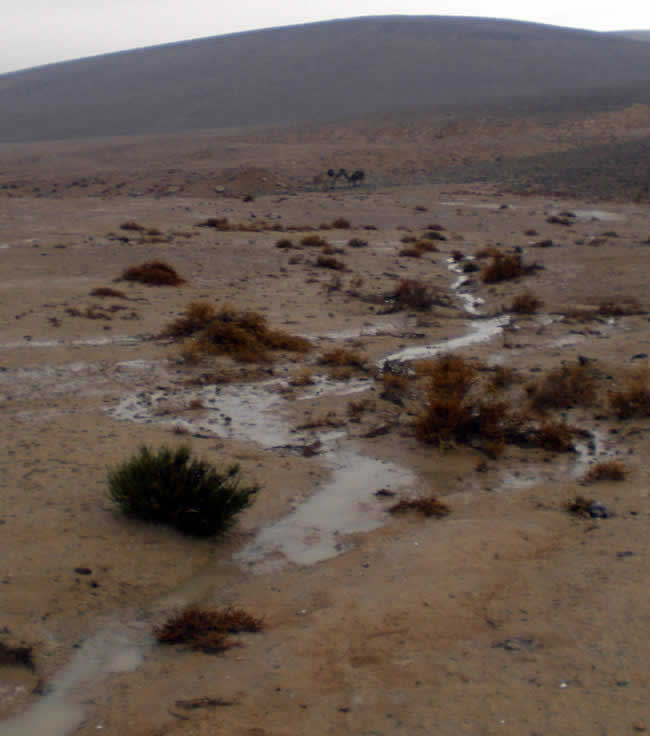
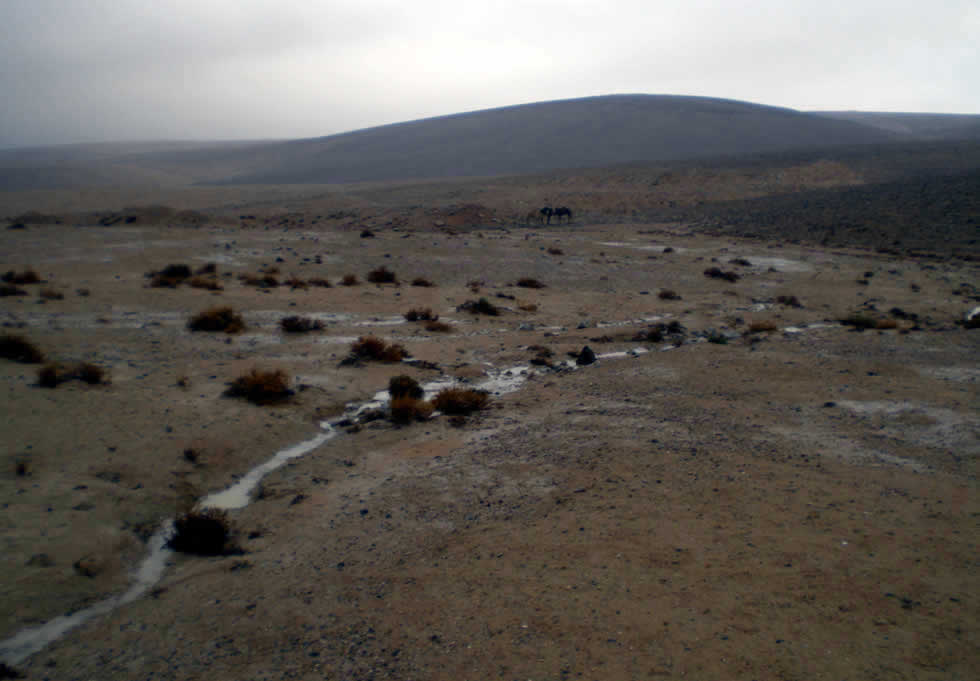
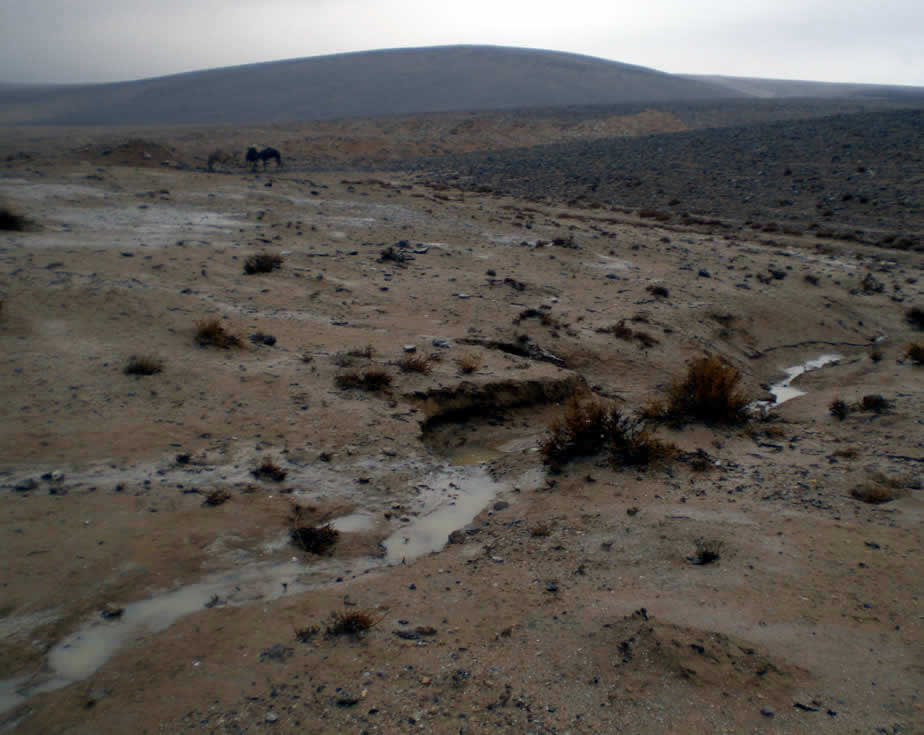
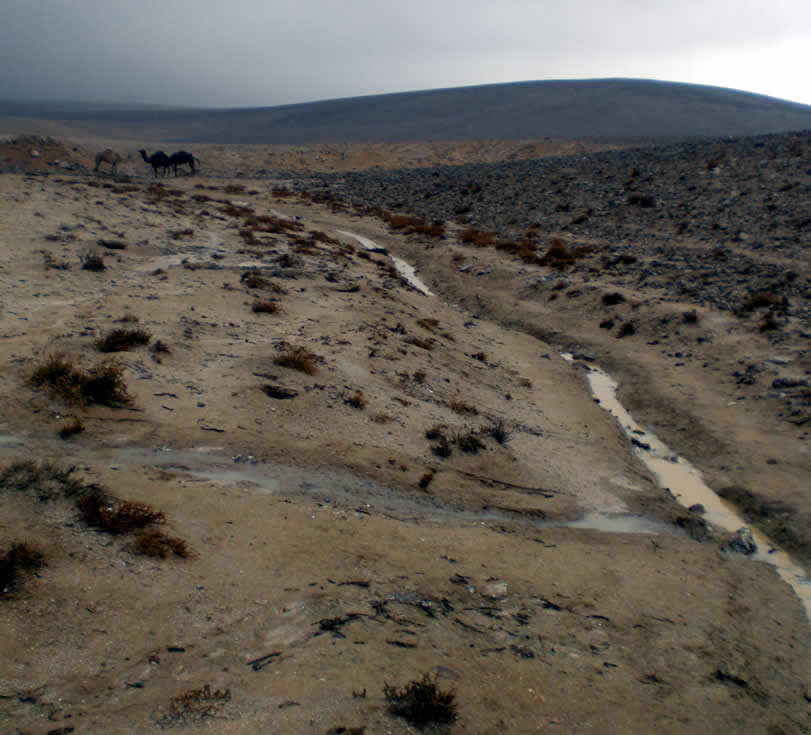
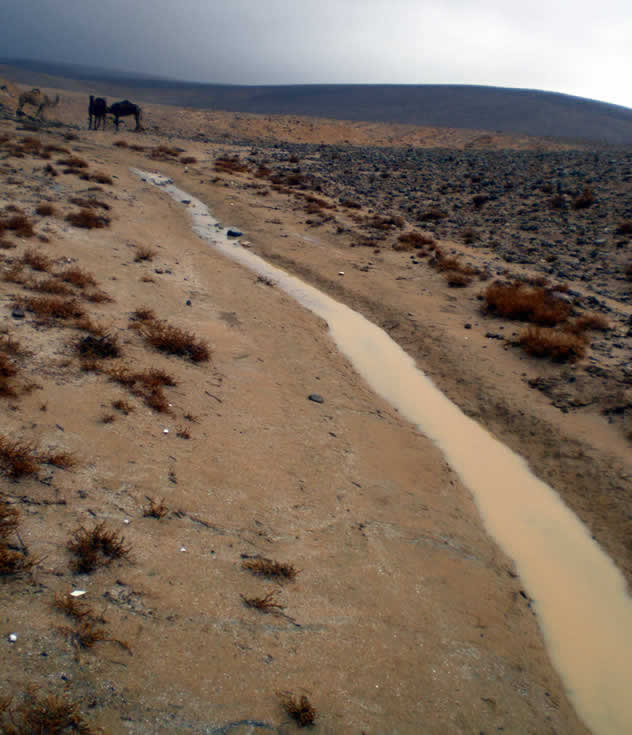
Continuation in "Heaven-on-Earth" in the Hebrew Bible
My 73rd birthday was celebrated by almost my entire family on August 12 [see
photos]
and this despite my quest NOT to celebrate it.
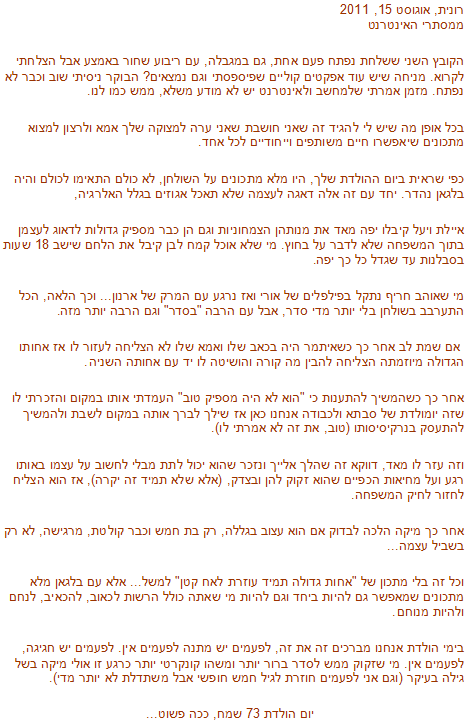 |
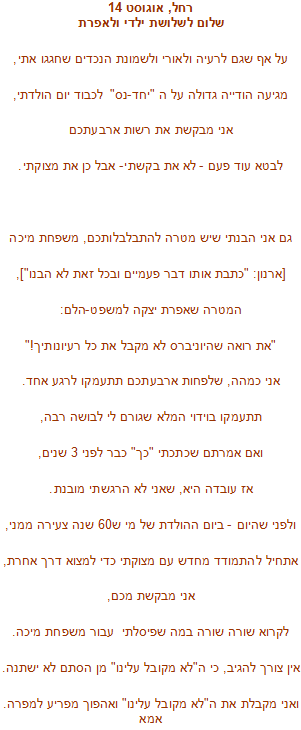 |
